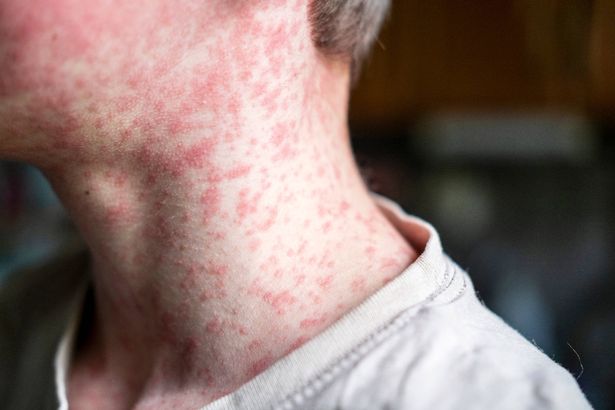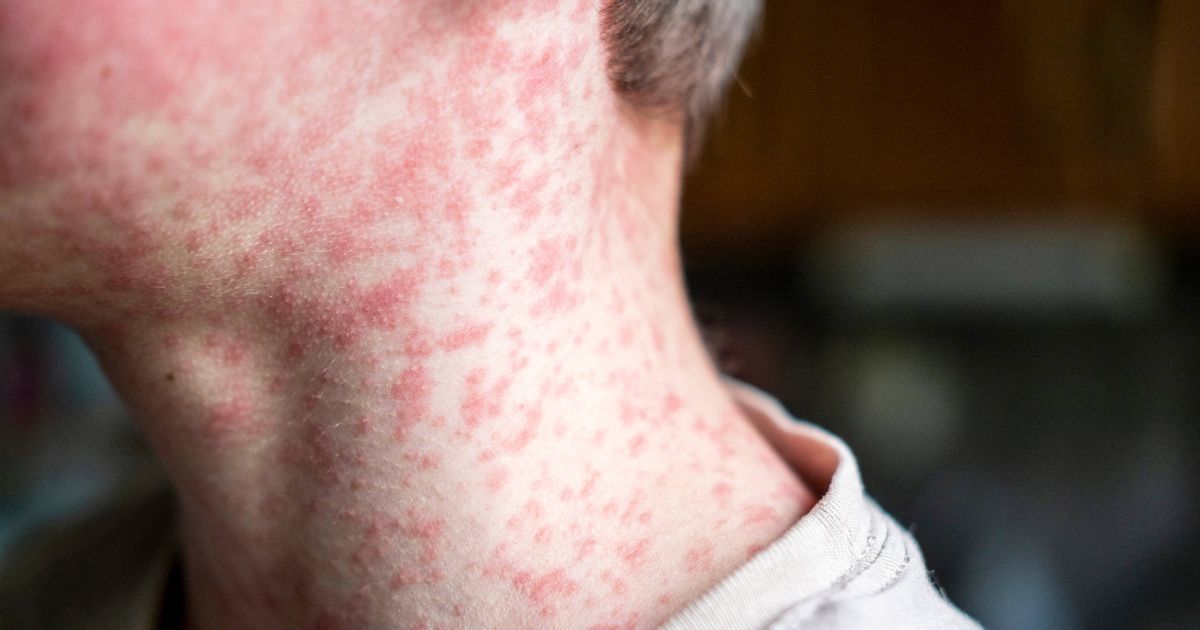Cases tend to rise around this time of year – and not everyone is protected
15:48, 13 Oct 2025Updated 16:23, 13 Oct 2025
People are being urged to stay vigilant about a virus that is “easily preventable” but could leave children and adults seriously ill. The winter weather creates ideal conditions for germs to multiply and spread.
A UK Health Security Agency (UKHSA) spokesperson warned on X: “Measles is highly contagious and can cause serious complications. It’s easily preventable with the MMR vaccine. Check that you and your loved ones are up to date and catch up on any missed doses.”
The warning comes after figures showed that, since January 1, 2025, more than 770 laboratory-confirmed measles cases have been recorded in England. The data confirmed that outbreaks, especially in the London and North West regions, have been falling since peaking over the summer months, reports the Express.
However, measles typically becomes more problematic during the winter months, as people spend more time together indoors and stay in close proximity to one another, making it easier for the virus to spread. The autumn return to school can also fuel a rise in cases, as children mix in close quarters.
The UK has seen a decline in the uptake of the MMR jab, which protects against measles, mumps and rubella, in recent years. As a result, many countries, including the UK, have seen a rise in measles cases.
Content cannot be displayed without consent
The most effective defence against measles is the MMR vaccine, which is available free on the NHS and administered in two doses. Measles can trigger severe complications, including pneumonia and meningitis, if it reaches other parts of the body.
What is measles?
Measles is a highly contagious viral infection that spreads easily between people and can result in severe illness for those who lack proper protection. You may face an increased risk of contracting measles or suffering complications from the disease if you’re:
under 12 months oldhave a weakened immune system (even if you’ve been immunised against measles)pregnantCan adults get the virus as well?
The NHS Inform website states that “anyone can get measles if they haven’t been vaccinated or they haven’t had it before”. The MMR (measles, mumps, and rubella) jab can be administered at any age, and is an important method of defence for adults who may not have received full vaccination.
After contracting measles once, your body develops resistance (immunity) to the virus, making it extremely unlikely you’ll catch it again. Measles generally sorts itself out within approximately 7 to 10 days without triggering any additional complications.
Contact your GP surgery if you’re uncertain whether you or your child has had the jab. The NHS provides additional information about the vaccine here.
 Anyone without a vaccine is not protected from this virus(Image: Natalya Maisheva via Getty Images)Warning signs and symptoms to monitor:
Anyone without a vaccine is not protected from this virus(Image: Natalya Maisheva via Getty Images)Warning signs and symptoms to monitor:
The NHS reports that a measles case typically begins with cold-like symptoms, followed by a rash several days afterwards. Some people may also develop tiny spots inside their mouth.
Initial red flags of measles include experiencing a high temperature, runny or blocked nose, sneezing, coughing and red, painful, watery eyes. Tiny white spots may emerge inside the cheeks and on the back of the lips several days later.
These spots typically persist for a few days. The rash typically appears a few days after the onset of cold-like symptoms, initially on the face and behind the ears, before spreading to the rest of the body. On white skin, the rash appears brown or red, but it may be less noticeable on darker skin tones.

